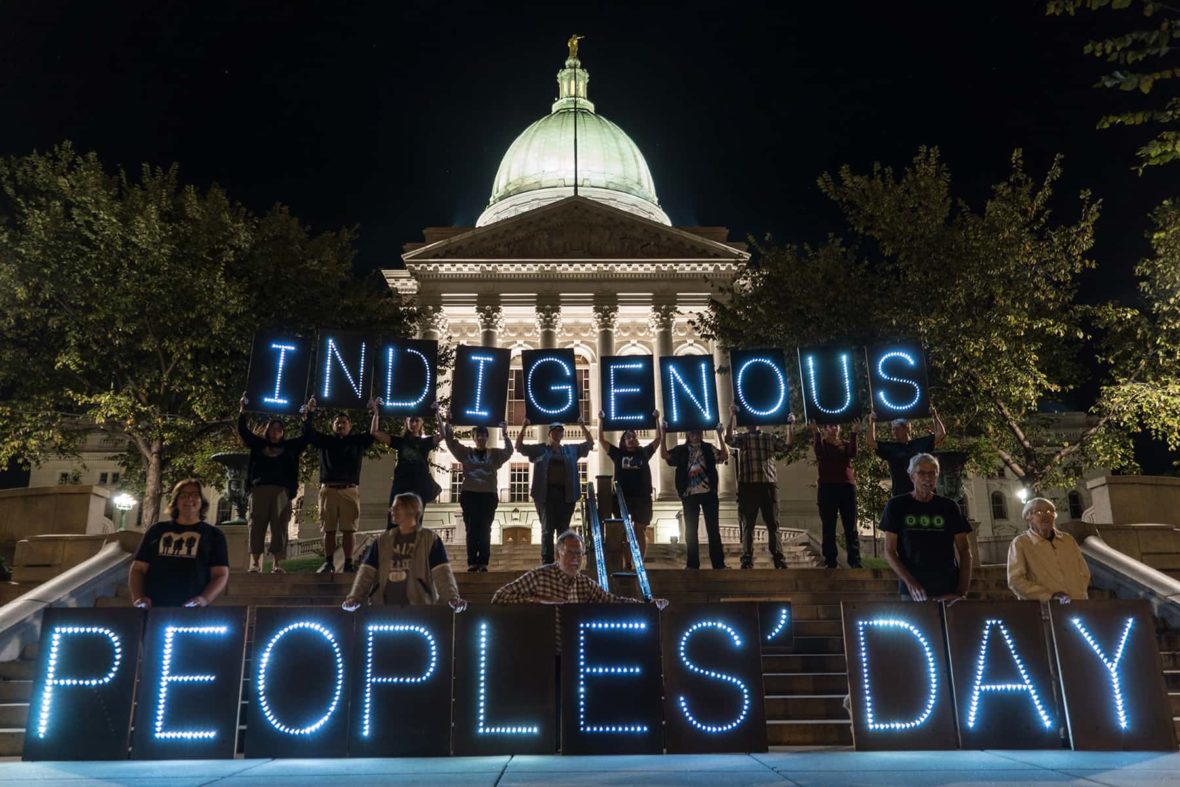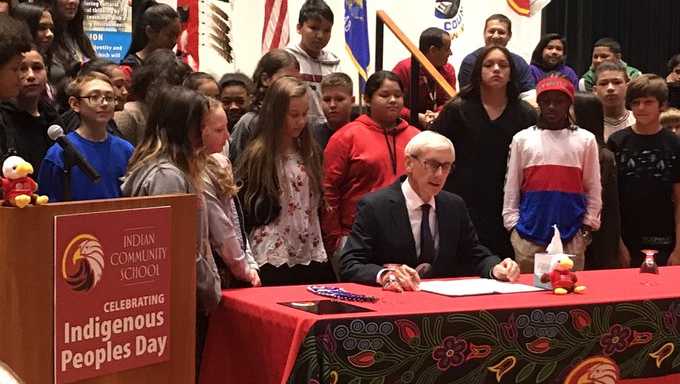Celebrating Indigenous People’s Day

Since 2019, Wisconsin has officially observed the second Monday of October as Indigenous People’s Day to recognize the history, culture and sovereignty of Indigenous people who live here.
The state observance of this holiday is thanks to decades of advocacy by Native activists, as well as more recent efforts by students at the Indian Community School in Franklin starting in 2016.
The history we celebrate today includes rich and diverse cultures, languages and communities. However, we must also recognize how cultural ties and practices were intentionally disrupted and harmed by racist policies, including the systematic removal of Native children from their communities.
Understanding Historical Trauma

As an organization that provides child welfare case management among our services, Wellpoint recognizes the part that this system has historically played in perpetuating harm, as well as the ongoing effects of past harmful practices.
Unlike individual trauma from direct personal experience, historical trauma is a “cumulative emotional and psychological wounding across generations” caused by harm that was done to a group of people.
At Wellpoint, we strive to address this harm by fully integrating an understanding of historical trauma into our trauma informed care practices.
This means that we recognize the ongoing impact that past injustices have on people living today, both in our interactions with clients and neighbors and in our internal staffing practices. We work to facilitate healing and connections, and continually look for where we need to make amends or change our approach.
Relationships and Connections are Key
Forging and maintaining caring connections is an essential element to healing. We are especially mindful of the importance of community and kinship connections in Native communities.
We actively recruit foster families from native communities, so children who do need to be in foster care are able to stay with their community of origin. Living with caregivers who have shared cultural connections is crucial when considering specific tribal practices and resources.
To build relationships with individuals, we try to meet people where they are. Our Caregiver Coordinators meet with people at outreach events and, when requested, in their homes to discuss foster care and listen to people’s concerns. Our staff know that many people in these communities may be understandably hesitant to engage, and focus on validating those concerns and answering questions as best as possible.
We also know that we can’t create supportive and healing spaces on our own. Our partners are critical to meet children and families’ needs effectively. Wellpoint works with partners like the Great Lakes Inter-Tribal Council (GLITC) to maintain relationships with tribal governments, connect with other providers, and learn about ongoing and emerging needs.
We also meet with community groups like Healing Intergenerational Roots (HIR), the Milwaukee Area Indian Resource Network (MAIRN), and other community leaders and organizations. These relationships help us learn about developments and resources that we can share with caregivers and families.




